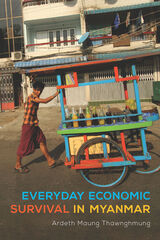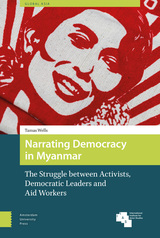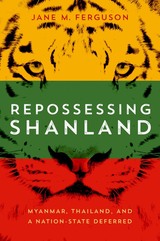
Long isolated by rigid military rule, Burma, or Myanmar, is one of the least known, significantly sized states in the world. Possessed of a rich cultural history yet facing a range of challenges to stability and growth, it has struck the imaginations of those concerned not only with geopolitical or trade affairs but also with poverty, health, and human rights. David I. Steinberg sheds new light on this reclusive state by exploring issues of authority and legitimacy in its politics, economics, social structure, and culture since the popular uprising and military coup of 1988.
Exploring the origins of that year’s tumultuous events, Steinberg analyzes a generation of preceding military governments and their attempts to address the nation’s problems. He focuses on the role of the military, the effects of Burma’s geopolitical placement, the plight of the poor, the destruction of civil society, and rising ethnic tensions. While taking into account the importance of foreign observers as counterpoints to official views, suppliers of economic aid, and advocates of reform, Steinberg contends that ultimately, the solutions to Myanmar’s varied problems lie with the Burmese themselves and the policies of their government.
The paperback edition includes a postcript that reveals the most current and critical issues facing Burma since the publication of the original hardcover in March 2001. Steinberg brings readers up to date on the recent release of political prisoners, economic and military conditions, United Nations actions, and the complex, ever-changing relationship between Thailand and Myanmar.

Thawnghmung conducted in-depth interviews and surveys of 372 individuals from all walks of life and across geographical locations in Myanmar between 2008 and 2015. To frame her analysis, she provides context from countries with comparable political and economic situations. Her findings will be welcomed by political scientists and policy analysts, as well by journalists and humanitarian activists looking for substantive, reliable information about everyday life in a country that remains largely in the shadows.


Based on close readings of Shan-language media and years of ethnographic research in a community of soldiers and their families, Jane M. Ferguson details the origins of these movements and tells the story of the Shan in their own voices. She shows how the Shan have forged a homeland and identity during great upheaval by using state building as an ongoing project of resistance, resilience, and accommodation within both countries. In avoiding a good/bad moral binary and illuminating cultural complexities, Repossessing Shanland offers a fresh perspective on identity formation, transformation, and how people understand and experience borderlands today.
READERS
Browse our collection.
PUBLISHERS
See BiblioVault's publisher services.
STUDENT SERVICES
Files for college accessibility offices.
UChicago Accessibility Resources
home | accessibility | search | about | contact us
BiblioVault ® 2001 - 2024
The University of Chicago Press









